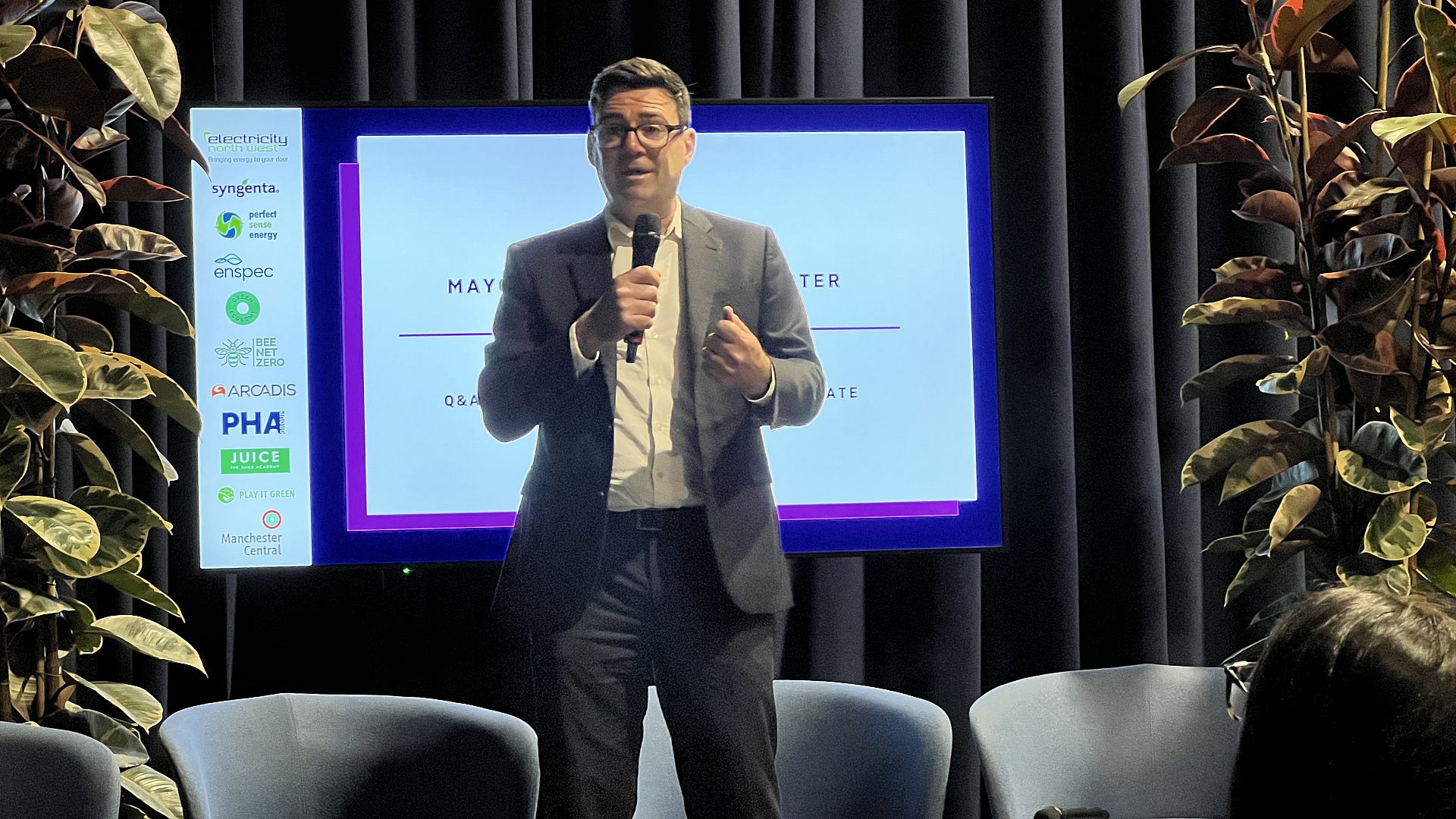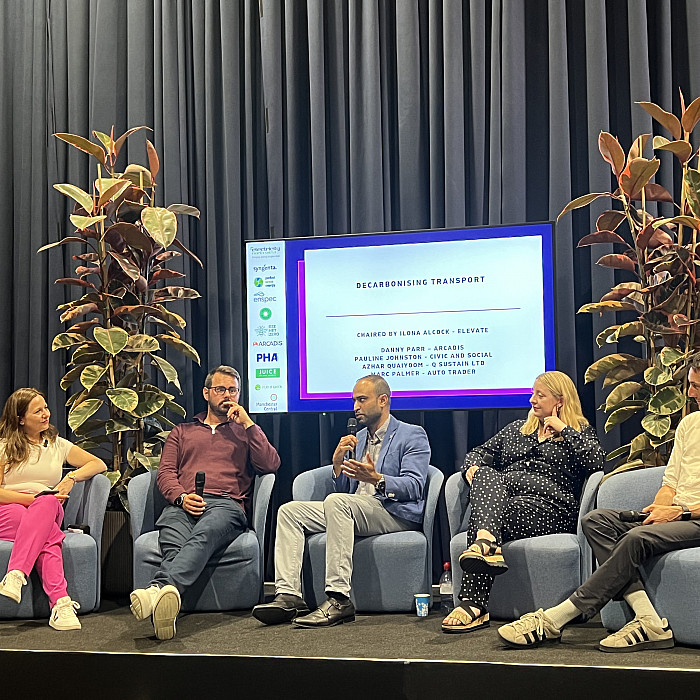Three key takeout's from the Northern Sustainability Summit
This month saw the Northern Sustainability Summit takeplace, run by Elevate and supported amongst others by the Greater Manchester Combined Authority (GMCA). As an architectural practice that has sustainability at the heart of our projects – be them stadiums, healthcare facilities, residential or commercial projects – I was interested to hear the views of those speaking and attending about how their industries are dealing with sustainability, the challenges and of course, the innovative solutions they are seeing to tackle these challenges.
Having spent the day listening and discussing with colleagues, there were three clear take outs from the event for me:
- Let’s not create green poverty Greater Manchester Mayor, Andy Burnham talked compellingly about the progress that Manchester as a city, but also the people of Manchester, have made to its sustainability agenda. However, he was clear that the ability to be ‘green’ was often driven by affordability, whether that was being able to own an electric car or having solar PV panels as a source of energy for your home or office. This raised conversations around how we manage the balance of becoming more environmentally active in our cities with cost. Of course, this is one of the issues that the Mayor of London, Sadiq Khan, is facing at the moment with his announcement of the expansion of the Ultra Emission Zone London wide and the backlash from some quarters who feel it will have a massive economic knock on effect on them and their businesses.
- Carbon literary While it is pretty much acknowledged nationally, if not globally, that we need to drive net carbon zero in our cities, with Manchester pledging to be carbon neutral by 2038, there was also an awareness at the conference that there is an educational piece still to be undertaken around carbon literary and understanding carbon across whole lifecycles. For those of us who work in the built environment it is not just about understanding usage of carbon, or even about monitoring and measuring embodied carbon in our buildings but about being more holistic in our thinking about carbon usage. For example, if opting for a more sustainable raw material for a build involves transporting it from the other side of the world, this could negate the carbon benefit of its use. Likewise thinking about the added social value of using a local supplier, and local materials to your development. And of course, ensuring that we are looking at the implications of our decisions not just in the now, but in 50 and even 100 years down the line, across the life of a building or critical piece of infrastructure.
- How we become smarter about our energy Finally, it isn’t just the choices about the energy that we are making – be that carbon fuels over renewables – but about being smarter about how we manage that energy. So, incorporating sensor technology that turns lights off not just in residential and commercial places, but for example in our factories, our industrial plants and our even our railway sidings. And if we have electric cars, remembering that these still have embodied carbon within them so opting to buy less, and use them less rather than simply swapping our dependency from petrol cars to electric ones. Although some of these things are happening piecemeal now, we need to see wholesale smarter behaviour when it comes to using our energy.
Of course, for us to encourage sustainable living, we need affordable and accessible public transportation systems. Obviously, the Transport for Greater Manchester Bee network, that will see a fleet of electric yellow buses servicing Manchester, paired with a fairer pricing strategy will be one example of this. Having recently been allocated devolution deal funding, Burnham noted this readdressing of the balance to make sustainable options for society, rather than individuals, would be a priority for GMCA.
Many of the themes discussed at the Northern Sustainability Summit are conversations we are already having with our clients - how we ensure they are working towards a greener future, that their buildings work as efficiently and as smartly as they can and of course, that they engage their communities within them, becoming accessible to all to add social value as part of the design. However, we must continue these discussions with all, bring people into conferences like the Northern Sustainability Summit to listen and learn and of course, ensure we turn this talk into action.

